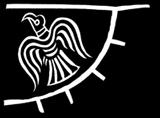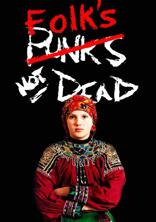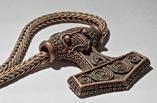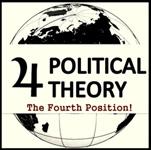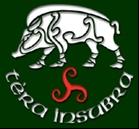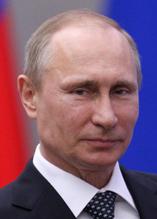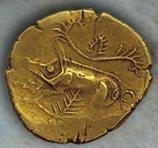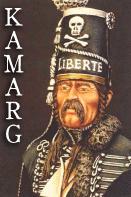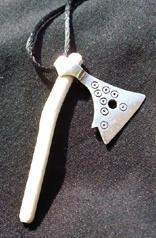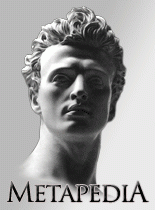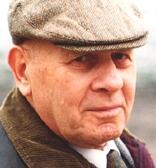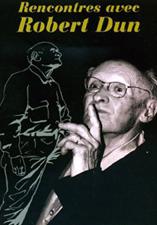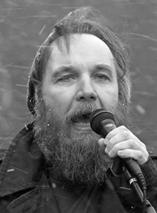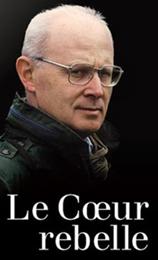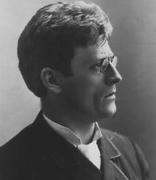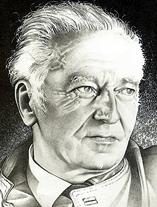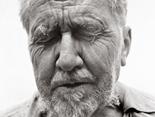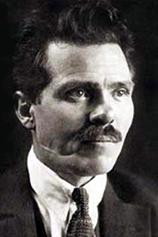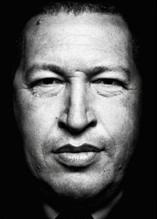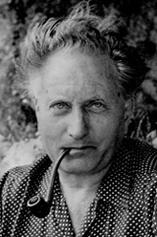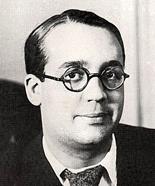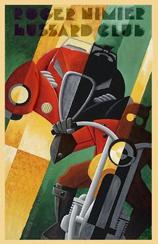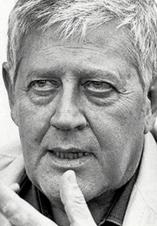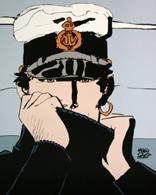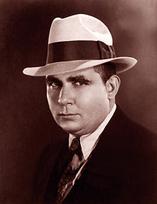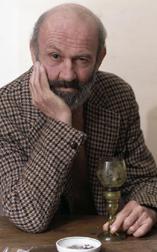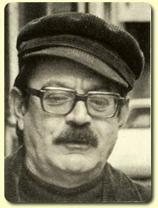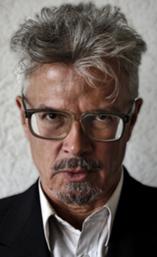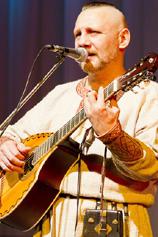26/07/2016
Poutine sème le chaos à la convention démocrate… disent-ils.
Poutine sème le chaos à la convention démocrate… disent-ils.
En attendant, Trump ne baisse pas le rythme.
En Tim Kaine, démocrate « à la papa », Hillary Clinton avait choisi pour colistier un mâle blanc pur beurre. Il lui fallait d’urgence se prémunir contre la pénétration croissante de Trump au sein de l’électorat ouvrier des États pivots industriels en détresse.
À juste titre : les sondages, suite à la convention républicaine de la semaine dernière, illustrent la remontée catastrophique de Trump, son hold-up sur les électeurs indépendants et la croissance inespérée de sa cote de popularité, cependant que les paramètres négatifs de madame Clinton (mensonge, honnêteté) montent en flèche. Mauvais…
Ceci en dépit de la puissante logorrhée publicitaire qui présentait Trump en désaxé, avant la grand-messe de Philadelphie de cette semaine, convention conçue pour vendre une fausse unité, tout en confirmant la « yougoslavisation » du pays, élevant au pinacle les représentants des forces centrifuges d’une société américaine en état de déni. Les vraies urgences des démocrates : la police ennemie des Afro-Américains, les toilettes des transsexuels, les discriminations d’un autre âge, la nationalisation des immigrants illégaux. La routine, quoi…
La capitulation de Sanders étant acquise, le futé sénateur soutenait Hillary comme la corde le pendu, laissant son mouvement parallèle s’organiser en contre-pouvoir du théâtre démocrate, attendant la rédaction du prochain chapitre de sa révolution sandiniste. Double jeu…
Survient l’affaire des courriels du Parti démocrate, la première fournée de WikiLeaks rouvrant la plaie au sein du mouvement de Bernie, floué. Suit alors une sorte de démission de la députée de Floride, présidente du parti, madame Wasserman Schultz… les délégués de Sanders parlant déjà de sortir Kaine du ticket présidentiel. Cacophonie…
Mais il faut rendre hommage à l’intelligence de la machine clintonienne. La contre-attaque, semée dimanche, a crû lundi, efficacement relayée par les médias : les hackers du Parti démocrate travaillaient pour Poutine, lequel roule pour Trump, lequel a, comme par hasard, imposé au Parti républicain son pacte de non-agression avec la Russie, comme sa vision d’un OTAN suranné, lequel enfin menace de ne pas soutenir l’Ukraine et les pays baltes en cas d’invasion poutinienne. D’autant que Trump a recruté Paul Manafort pour présider sa campagne ; le même Manafort qui était le conseiller-lobbyiste du président ukrainien Viktor Ianoukovitch, ami de Poutine. CQFD…
Et les irréductibles républicains bellicistes de jubiler : Charles Krauthammer, pronostiqueur en échec chronique, confirme dimanche sur Fox News, impavide, que « c’est plausible, Trump ayant remis l’OTAN en question ». CNN insiste, lundi, sur le fait que le FBI est saisi de la question. De là à suggérer que Trump soit jugé pour haute trahison…
La presse oublie une chose, semble-t-il. Si monsieur Poutine veut vraiment détruire l’Amérique, madame Clinton fera un bien meilleur travail que Trump. D’autant que Russes et Chinois ont probablement récolté bien des choses sur les serveurs mal protégés de l’ancienne secrétaire d’État…
En attendant, Trump ne baisse pas le rythme.
André Archimbaud, pour Boulevard Voltaire, 26 juillet 2016.
http://www.bvoltaire.fr/andrearchimbaud/poutine-seme-le-c...

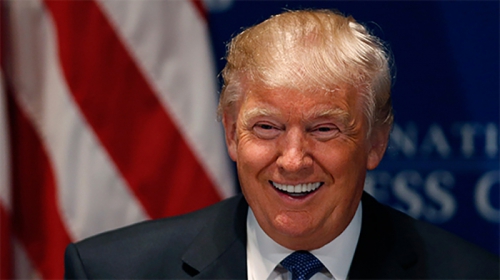
17:07 Publié dans Européens d'Outre-europe | Lien permanent | Commentaires (0) | Tags : usa, république bananière des zuhéssas, donald trump, hillary clinton, tim kaine, monde en perdition
28/08/2015
Russel « Texas » Bentley, l’Amérique qui refuse d’abandonner le Donbass.
Russel « Texas » Bentley, l’Amérique qui refuse d’abandonner le Donbass.
24 août 2015
Les Etats-Unis sont souvent montrés comme une des plaies de l’Humanité, attisant guerres et conflits, poussant des pions, manipulant l’Union européenne et se trouvant à la manœuvre à travers le monde dans le grand jeu international. Le Peuple américain toutefois n’est pas à confondre avec son gouvernement. Si beaucoup sont aveuglés ou dans l’ignorance totale du dessous des cartes, il y a une opposition américaine véritable et qui ne se décline pas seulement à travers le duel illusoire de deux grandes formations politiques. Russel « Texas » Bentley est de ceux-là, en venant dans le Donbass avec quelques autres Américains, il a prouvé qu’il y avait encore des hommes et des femmes debout en Amérique.
Ce grand pays, chef de file de l’illusion démocratique qui est aussi un mirage européen a donné naissance à Russel en 1966 à Austin. Il vient d’une famille humble du Texas, une terre dont les Français ne connaissent que quelques stéréotypes sans doute tout aussi ridicules que ceux qui sont véhiculés sur la Russie. Il dit lui-même avoir vécu une enfance libre et différente, lui apportant autre chose que les désirs futiles de la société américaine. Il ne finira cependant pas son cursus scolaire primaire et secondaire, comme il le dit lui-même, il était « un mauvais garçon ». Il fait effectivement les 400 coups, aura des ennuis avec la Police, vivra une vie riche en événements. D’abord ouvrier dans une usine américaine installée à Mexico, dès l’âge de 16 ans, il indique que ce moment de sa vie fut capital. C’est en effet au contact des classes sociales les plus pauvres qu’il se retrouve. Il s’engage ensuite dans l’Armée américaine où il servira pendant trois années. C’est une expérience qui le conduit dans les troupes du Génie, il passe même deux ans en Europe, en Allemagne, ce qui lui permet de visiter l’Ecosse ou l’Autriche.
De retour au pays, il travaille six années dans le restaurant paternel, un établissement pour touristes installé sur une plage du Mexique, endroit paradisiaque pour les Américains et étrangers. Ses ambitions d’entrer au collège pour entamer des études supérieures sont toutefois perturbées par la mauvaise situation financière de sa famille. Alors, il part, effectue tous les boulots possibles, s’installe à Houston, puis dans le Minnesota, puis en Alaska, il sera entre autre bucheron, rude travail. Dans cette histoire de vie, Russel indique avoir été politisé assez rapidement et inspiré par des personnages comme Che Guevara. Il comprit vite que la politique internationale américaine visait autre chose que le bonheur des peuples. Son premier contact avec la Russie se fera, comme souvent, à travers une femme. C’est avec émotion et fougue qu’il parle de cette rencontre et de leur vie commune. Les événements politiques, les guerres, les révolutions se succédaient dans le Monde. Il dit avoir été marqué par ceux du 11 septembre 2001. Il ne sera pas dupe dit-il des commanditaires des attentats. C’est le sapeur du Génie qui parle, pour lui, l’écroulement des tours du Wall Trade Center ne pouvait être le fait du choc du crash de l’avion de ligne. Il doute et observe.
Il s’engagera totalement contre la guerre contre l’Iraq, ayant déjà manifesté en 1990 contre l’agression internationale, il se trouve dans la rue avec des milliers de manifestants en 2003. Cet engagement politique se couple vite avec un engagement social et humanitaire. Comme il le dit simplement « J’ai aidé des gens dans le besoin, par exemple la famille d’un prisonnier, sa femme restée seule avec cinq enfants, et bien d’autres gens oubliés par le système sociétal américain ». Le choc final après l’Afghanistan, la Somalie, la Lybie ou la Syrie arrive le 2 mai 2014, à la nouvelle du massacre d’Odessa. L’événement fut un électrochoc, il ne peut se résoudre à rester sans rien faire. Il ne réfléchira pas longtemps. Il vend sa moto 2 000 $, lui l’amoureux et le passionné des puissantes mécaniques à deux roues. Rassemblant également ses économies, il quitte le pays pour rejoindre Moscou puis de là Rostov et enfin Donetsk. Il y arrive en décembre 2014 alors que la fournaise du Donbass est en pleine ébullition. La guerre est là, il est incorporé dans le bataillon Vostock, l’un des meilleurs de l’Armée républicaine.
Il ne tarde pas à monter au front et participe dès le 17 janvier 2015 à de terribles combats autour de l’aéroport de Donetsk. N’ayant jamais vu le feu auparavant, il raconte ses premiers instants dans le tourbillon de la guerre avec force : « Il faisait vraiment froid, j’avais déjà connu cela dans le Minnesota ou en Alaska, mais en temps de guerre, rester des heures sans bouger fait que tu ne ressens plus tes mains ou tes jambes. C’était très dur et vraiment dangereux, cela tirait dans tous les sens et nous étions sévèrement bombardés par les Ukrainiens. Nous avons subi des pertes, j’ai vu tomber des camarades, mais nous les avons finalement repoussés avec beaucoup plus de casse. Je ne me suis jamais dit que ma dernière heure était venue, mais l’épreuve du feu est un moment particulier que j’ai du mal à exprimer. Finalement nous avons pris toutes les positions des Ukrainiens, la tour de contrôle et par la suite je suis resté au front jusqu’au mois de mai dernier. Durant cette période j’ai changé d’unité, pour intégrer le bataillon Khan, un bataillon d’élite, de commandos, vraiment des soldats très professionnels et bien entraînés. A mon âge j’ai eu du mal à suivre et j’ai finalement été transféré au sein de mon unité au service d’informations, comme correspondant de guerre, je me suis alors lancé dans la guerre de l’information »
Cette guerre de l’information, Russel va fonder la Radio Free Donbass, « Good Morning Donbaassssssssssss ! » qui diffuse pour l’instant deux fois par semaine quelques heures le mardi et le dimanche (depuis seulement trois semaines). Questionné sur son retour en Amérique il répond que « je n’en ai pas l’intention, ma maison maintenant c’est le Donbass, il y a ici un Peuple admirable, une cause à défendre, de belles filles, des hommes et des femmes que je respecte infiniment pour leur courage et leur abnégation. De toute façon si je rentrais aux USA, la prison m’attendrait et de sérieux problèmes. Ma famille et mes amis me supportent, même si beaucoup sont de chauds partisans de la famille Bush, mais ils comprennent et respectent ma décision. Je ne rentrerais probablement jamais en Amérique. Je pense d’ailleurs que cette guerre se finira par la victoire de la Novorossia, de quelle façon et quand, je ne puis le dire, mais je crois que ce pays s’étendra jusqu’à Odessa ! ». « A bientôt mon frère » me lance-t-il dans un Français imparfait au milieu de mots russes et américains. Son chapeau est désormais légendaire toujours vissé sur sa tête et orné d’une étoile rouge à la manière des combattants soviétiques. Je le quitte après avoir une fois encore entendu une histoire de vie, qui montre, qu’ici ou ailleurs, qu’en Europe ou aux Etats-Unis, il y a de l’espoir. Il y a des âmes et des cœurs qui ne battent pas que pour le Donbass, mais pour notre liberté à tous. La question est de savoir ce que nous ferons de nos propres vies. Russel lui a choisi.
Laurent Brayard
http://novorossia.today/russel-texas-bentley-l-amerique-qui-refuse-d-abandonner-le-donbass/
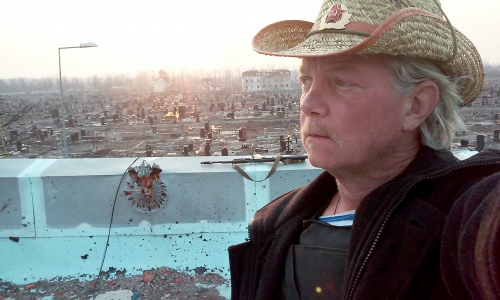
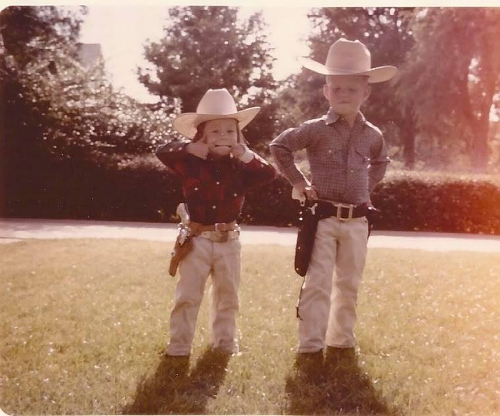
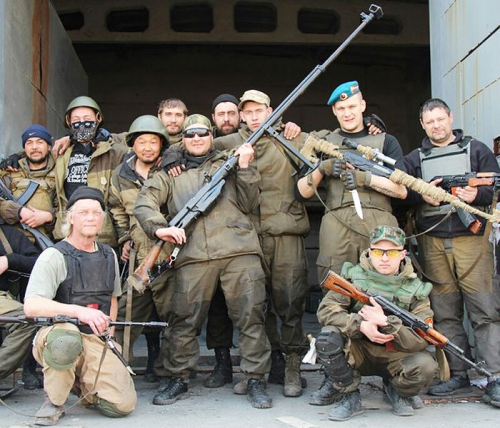
11:42 Publié dans Blog, Européens d'Outre-europe, Guerriers, Histoire européenne, Ukraine / Novorossiya | Lien permanent | Commentaires (0) | Tags : novorossia, novorossiya, donbass, russel «texas» bentley, texas, guerrier, soldat, laurent brayard
01/07/2015
Touche pas à mon drapeau !
Touche pas à mon drapeau !
Jean-Claude Rolinat
Des esprits simplistes ou simplement désinformés, manifestent à Columbia, la capitale de la Caroline du Sud, pour demander que le glorieux « battle Southern flag » soit amené.
Ce drapeau des armées confédérées fut choisi plutôt que le Stars and bars, l’étendard officiel de la CSA, Confederate States Army, qui ressemblait trop au Stars and stripes des USA, United States of America, pour se différencier nettement des emblèmes ennemis.
Cet héroïque pavillon des armées confédérées, rappelons-le, n’est pas le symbole d’une quelconque suprématie de blancs mentalement attardés comme ce jeune Dylan Roof, un détraqué de 20 ans qui a froidement abattu dans une église de Charleston 9 personnes de couleur, mais une bannière militaire sous les plis de laquelle des milliers et des milliers de « ventres gris » sont morts au feu.
Elle est sacrée comme l’est notre tricolore qui flotte le 11 novembre sur tous nos monuments aux morts. Ses treize étoiles disposées en diagonale – croix de Saint-André – sur fond bleu et rouge, représentent les 11 Etats confédérés de la guerre de sécession (1861-1865), plus le Missouri, non admis officiellement par le Congrès de Richmond, et les nations indiennes du Trans-Mississippi department, les Cherokees, les Choctaws, les Chickasawas, les Creeks et autres Séminoles. Ils savaient ces indiens, ce que les yankees leur feraient subir…
Il s’est même trouvé un journaliste ignare pour parler sur une chaine d’infos en continu de « drapeau esclavagiste », alors que l’on sait que la plupart des soldats confédérés n’avaient pas d’esclaves sur leurs propriétés et que ces derniers, dans leur immense majorité, n’ont pas déserté les plantations alors que leurs maîtres étaient au front. D’ailleurs, le général Robert Lee lui-même, prestigieux commandant en chef de l’Armée de Virginie, était décidé à affranchir tous les siens.
Retirer officiellement cet emblème alors qu’il figure sur de nombreux objets usuels, qu’il enjolive les plaques automobiles, qu’il flotte en fanion accroché à certains pick-up ou à côté des tombes des patriotes sudistes serait, n’ayons pas peur des mots, une profanation !
Imagine-ton d’écarter le drapeau tricolore frappé de la Croix de Lorraine si un ancien de la 2 ème DB – il aurait de la bouteille ! – tuait neuf touristes allemands, ce qu’à Dieu ne plaise, ou encore arracher les Croix noires des cimetières militaires Teutons et Germains au prétexte qu’elle ressemblerait trop à la Croix de Fer hitlérienne ? Laissons à l’histoire, la grande, ses drapeaux qui symbolisent le courage et la vaillance d’une petite nation morte au mois d’avril 1865 à Appomattox, charmant hameau tout blanc dans la verte campagne de Virginie.
Jean-Claude Rolinat, pour Synthèse nationale, le 23 juin 2015.
Jean-Claude ROLINAT est membre de la Société Française de Vexillologie (SFV)
http://synthesenationale.hautetfort.com/archive/2015/06/23/touche-pas-a-mon-drapeau-5644601.html
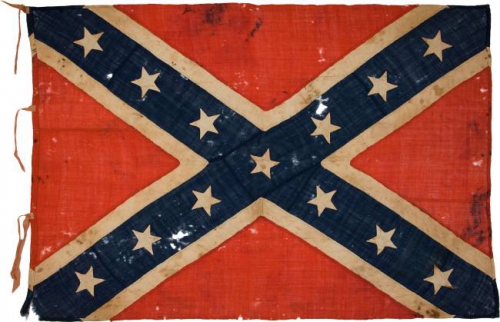
12:06 Publié dans Blog, Européens d'Outre-europe, Guerriers, Symbolisme | Lien permanent | Commentaires (2) | Tags : confédérés, battle southern flag, drapeau confédéré, guerre de sécession, dixie, dixieland, symboles, drapeaux, bannières
03/04/2015
Appeal of the stoned kievan, 2015.
Appeal of the stoned kievan, 2015.
Un Ukrainien s’adresse à ses compatriotes… et nous parle un peu (par la même occasion) de l’Ukraine de Porc’Ochenko. [eng subs by Kazzura]
Le "coup de gueule" du printemps !
18:12 Publié dans Blog, Coups de gueule, Européens d'Outre-europe, Monde en perdition, Ukraine / Novorossiya | Lien permanent | Commentaires (0) | Tags : ukraine, kiev, appeal of the stoned kievan, coup de gueule
29/12/2014
Le projet secret d’un « deuxième Israël » en Ukraine
Le projet secret d’un « deuxième Israël » en Ukraine
par Wayne Madsen, pour Réseau Voltaire International
Le rôle joué par les personnalités juives et l’État d’Israël dans la crise ukrainienne n’est pas passé inaperçu, sachant que cette communauté représente moins d’un pour cent de l’ensemble de la population. Cependant, l’administration Netanyahou a en sa possession un rapport confidentiel confirmant que les juifs ashkénazes ne sont pas originaires du Levant, mais sont les descendants des Khazars, ce peuple mal connu fondateur d’un empire juif au dixième siècle sur les rives de la mer Noire. Ceci explique pourquoi certains sionistes voient en l’Ukraine un possible second Israël.
Réseau Voltaire International / Washington D.C / 28 décembre 2014.
( Un article découvert via : http://lameutearverne.blogspot.ca/search/label/Ukraine )
-----------------------------
Wayne Madsen : Ancien contractant de la National Security Agency (NSA), devenu journaliste spécialisé sur le renseignement électronique, puis sur le renseignement en général. Il a notamment été chef de rubrique de la revue française Intelligence Online jusqu’à son rachat par Le Monde. Il publie le Wayne Madsen Report et intervient régulièrement sur la chaîne satellitaire Russia Today.
--------------------------------------
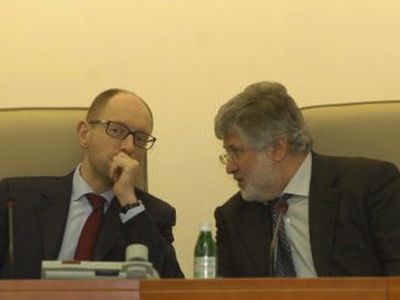
Le Premier ministre ukrainien Arseni Iatseniouk (Thetan opérant de niveau 6 au sein de l’Église de scientologie) en pleine discussion avec le mafieux Ihor Kolomoïsky, qu’il a nommé gouverneur de l’oblast de Dnipropetrovsk. Ce dernier est impliqué dans le massacre d’Odessa du 2 mai 2014 à la tête de sa propre armée, le bataillon Dnipro-1. Il s’est attaché les services de R. Hunter Biden (fils du vice-président états-unien Joe Biden) et de Devon Archer (président du Comité de soutien à la campagne présidentielle de l’actuel secrétaire d’État, John Kerry) en tant que membres du conseil d’administration de sa holding d’infrastructures gazières.
--------------------
Le Times of Israel, journal israélien indépendant dont le comité de rédaction compte des anciens journalistes du quotidien Ha’aretz, a publié un papier passionnant qui n’a pourtant pas fait grand bruit. L’article en provenance de Jerusalem et Zhitomir, daté du 16 mars 2014 et écris par Hirsh Ostropoler et I. Z. Grosser-Spass, correspondants russes et ukrainiens du journal, fait mention d’un rapport confidentiel remis au gouvernement israélien [1]. Ce rapport, établi par un comité d’experts en histoire juive et reposant sur des sources universitaires, parvient à la conclusion que les juifs européens descendent en réalité des Khazars, peuple guerrier d’origine mongole et tatare ayant dominé l’Ukraine et la Russie méridionale et s’étant converti en masse au judaïsme au VIIIè siècle.
Les sionistes prétendent depuis longtemps que la terre revendiquée d’Israël revient de droit au peuple juif, que les conquêtes successives de différents empires ont évincé et dispersé, ce que l’on a appelé la diaspora. Apporter la preuve que les ashkénazes, qui forment l’essentiel de la population israélienne, ne sont pas historiquement liés à la Palestine remettrait en question le principe même d’Israël comme étant la patrie millénaire du peuple juif.
Les journalistes israéliens ont souligné que toute discussion entre Khazars et l’État d’Israël avait toujours été méprisée par les responsables israéliens. Ils citent ainsi le Premier ministre Golda Meir, qui aurait déclaré : « Khazar, Schmazar. Il n’y a pas de peuple khazar. Je ne connais pas de Khazars à Kiev. Ni à Milwaukee. Montrez-les moi, ces Khazars dont vous parlez. » Les preuves génétiques d’une population khazare migrante venue d’Europe et qui revendique aujourd’hui des origines ancestrales en Palestine disqualifient sérieusement les prétentions sionistes sur cette terre.
L’établissement du fait que les juifs d’Europe centrale et d’Europe de l’est n’ont pas de légitimité historique en ce qui concerne leurs revendications sur la Palestine a créé bien des remous en Israël et ailleurs. La Knesset se prépare à voter une loi présentée par le gouvernement faisant d’Israël une « nation » juive. Le Premier ministre, Benyamin Netanyahou, après avoir lu le rapport confidentiel au sujet des Khazars, a déclaré qu’Israël était « l’État nation du peuple juif. » Les prétentions ashkénazes en Israël étant diminuées, pour ne pas dire plus, Netanyahou, ses amis du Likoud, ses alliés du parti orthodoxe juif comme les colons de Cisjordanie n’ont pas d’autre choix que de jouer la carte de la revendication nationaliste, non seulement pour Israël, mais aussi pour la Cisjordanie (ou « Judée-Samarie », comme l’appelle les nationalistes juifs).
Toutefois, certains juifs, en Israël comme ailleurs, ne souhaitent pas prendre de risques. Une des raisons principales pour qu’Ihor Kolomoïsky — le richissime magnat juif ukrainien et gouverneur de la province de Dnipropetrovsk, qui est aussi citoyen israélien et chypriote — dépense des dizaines de millions de dollars pour recruter des nationalistes ukrainiens de droite et des néo-nazis venus d’ailleurs en Europe pour combattre la majorité russophone de la région du Donbass en Ukraine orientale, c’est la peur de voir capoter le projet de transformation de l’Ukraine en « Israël-bis ». Les mesures de protection prises par la Russie vis-à-vis de la région du Donbass, tout comme son intégration à la Crimée par voie référendaire (cette région étant convoitée par les nationalistes khazars juifs renaissants) menacent la transformation de l’Ukraine en deuxième patrie pour les juifs ashkénazes qui, déjà, s’inquiètent au sujet de leur emprise sur la terre d’Israël.
Le papier retentissant du Times of Israel à propos des origines khazares des juifs ashkénazes a aussi mis en lumière qu’Israël, ayant conscience qu’un État palestinien est inévitable compte tenu des pressions européennes en ce sens, se prépare à déplacer ses colons ashkénazes de Cisjordanie en Ukraine. La recherche de pointe dans le domaine de la génétique en Israël a permis d’établir un lien direct entre les ashkénazes d’Israël et les Khazars qui se sont jadis dispersés en Europe de l’est et en Europe centrale après la conquête de l’empire khazar par la Russie au XIè siècle.
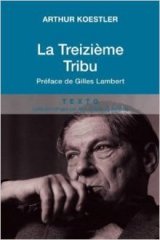 Les Israéliens et leurs alliés sionistes du monde entier ont toujours accusés les tenants du lien génétique entre ashkénazes et Khazars d’antisémitisme primaire. Cependant, les éléments de recherche génétique contenus dans le rapport confidentiel israélien ne font que confirmer ce qu’avait révélé l’historien juif Shlomo Sand dans son livre Comment le peuple juif fut inventé. Le concept de descendance khazare, lui, avait été pour la première fois évoquée en 1976 par l’historien hongrois Arthur Koestler dans son livre La Treizième tribu.
Les Israéliens et leurs alliés sionistes du monde entier ont toujours accusés les tenants du lien génétique entre ashkénazes et Khazars d’antisémitisme primaire. Cependant, les éléments de recherche génétique contenus dans le rapport confidentiel israélien ne font que confirmer ce qu’avait révélé l’historien juif Shlomo Sand dans son livre Comment le peuple juif fut inventé. Le concept de descendance khazare, lui, avait été pour la première fois évoquée en 1976 par l’historien hongrois Arthur Koestler dans son livre La Treizième tribu.
Les journalistes du Times of Israel relayent les révélations d’un assistant anonyme de Netanyahou au sujet des projets d’émigration israélienne vers l’Ukraine. « Nous avons d’abord pensé que reconnaître être des Khazars serait une façon pour nous de contrer l’inflexibilité d’Abbas (le président de l’autorité palestinienne) sur l’impossibilité d’une présence juive dans un État palestinien. Nous tentions sans doute ce faisant de nous raccrocher à ce que nous pouvions. Mais son incapacité à accepter la chose nous a poussés à chercher des solutions plus ingénieuses. L’invitation au retour des juifs en Ukraine fut une véritable aubaine. Mais le déplacement rapide de tous les colons d’Israël n’irait pas sans poser problème au niveau logistique et économique, et Il va de soi que nous ne souhaitons pas revivre une expulsions des colons semblable au plan de désengagement de Gaza. »
Ostropoler et Grosser-Spass rapportent aussi les propos d’une source israélienne anonyme selon laquelle « Il ne s’agit pas de renvoyer tous les ashkénazes en Ukraine. Cela n’est, de toute évidence, pas faisable. Comme souvent, les médias exagèrent et font dans le sensationnel… C’est bien pourquoi il faudrait une censure militaire. »
Le Projet conjoint d’Israël et de l’Ukraine consiste à déplacer les colons de Cisjordanie en République Autonome de Crimée (Russe), et ce après une éventuelle rétrocession de la péninsule à l’Ukraine, comme ils l’espèrent. Pour les sionistes ukrainiens comme Kolomoïsky, ou leurs alliés états-uniens tels que Victoria Nuland (secrétaire d’État adjointe, déléguée aux Affaires européennes et eurasiennes) et Geoffrey Pyatt (ambassadeur US en Ukraine), l’objectif ultime consiste à établir une région juive autonome en Crimée et à redonner à la péninsule son nom khazar d’origine, Chazerai. Comme les Tatars qui vivent aujourd’hui en Crimée, et ailleurs, sont en majorité musulmans, le projet de création d’une nation khazare en Ukraine reposerait aussi probablement sur un fort prosélytisme de la part des Israéliens et des Ukrainiens déterminés à réinstaurer la Khazarie comme alternative à l’État d’Israël. Le prosélytisme juif (qui se concentre actuellement sur les « crypto-juifs » métis catholiques au Mexique, les chrétiens, hindous et bouddhistes en Inde, les orthodoxes russes et les bouddhistes de Birobidjan en Sibérie, les musulmans du Pakistan et d’Afghanistan, les chrétiens, musulmans et animistes d’Ouganda, du Ghana, du Mali du Nigeria du Zimbabwe, du Mozambique et du Malawi et sur quelque groupes de descendants juifs supposés en Chine, à Sao Tomé-et-Principe, à Tahiti, au Suriname, au Vietnam, au Brésil et au Pérou) traduisent la volonté d’Israël de renforcer la présence juive dans un but de colonisation en dehors des territoires illégalement occupés que sont le Cisjordanie et le plateau du Golan. Outre l’Ukraine, le nord de l’Irak, l’est de la Libye, la ville d’Alexandrie en Égypte, certaines parties de la Turquie, la Patagonie en Argentine ainsi que l’Ouganda sont tous des territoires qui ont été envisagés comme colonies juives en remplacement ou en complément de la Cisjordanie. Les Bnei Menashe des États de Manipour et de Mizoram au nord-est de l’Inde, ces soi-disant « tribus perdues d’Israël », sont considérées par la majorité des Indiens, non comme des juifs, mais comme des migrants économiques à la recherche d’une vie meilleure en Israël. Les expansionnistes israéliens veulent tellement gonfler leurs rangs et développer leurs prétentions territoriales qu’ils ont fait réaliser des études génétiques douteuses en vue de classer comme « tribus perdue » d’Israël les Sorbes d’Allemagne de l’est, l’ethnie Bantou Lemba (au Zimbabwe, Malawi et Mozambique) et aussi certains Italiens du sud, certains Arméniens, et certains Grecs.
En Ukraine, ce prétendu « deuxième Israël », Kolomoïsky et le pouvoir de Kiev ont enrôlé des ex-membres des Forces de défense israéliennes dans leurs bataillons de volontaires, notamment le bataillon Azov. Une des unités israéliennes, commandée par un certain « Delta » est connue sous le nom des « Casques bleus de Maidan » [2]. Si Israël n’avait pas un intérêt direct à développer son influence en Ukraine, le pays pourrait facilement empêcher ces unités de se rendre sur place.
On trouve aussi en Cisjordanie des colons juifs sépharades qui sont les descendants des juifs Marranos d’Espagne sous domination musulmane, qui furent chassés de la péninsule ibérique au cours de l’inquisition espagnole et portugaise du XVè siècle et qui n’ont aucun lien avec les ashkénazes ou les khazars. Récemment, dans une démarche similaire à l’invitation des ashkénazes de Cisjordanie à venir s’installer en Ukraine, l’Espagne et le Portugal ont promulgué des lois permettant aux juifs sépharades du monde entier en mesure d’attester de leurs origines Marranos d’acquérir la nationalité dans les deux pays.
Certains russophones du Donbass en ont assez des intentions des pro-Israéliens au sein du gouvernement de Kiev. Curieusement, Kolomoïsky a fait appel à un certain nombre de néo-nazis d’Ukraine occidentale et d’Europe pour rejoindre les rangs de ses bataillons et il faut savoir que les organisations droitistes auxquelles ils appartiennent ont toujours défendu l’idée d’une « mêlée générale » opposant la Russie aux descendants des Khazars d’Israël, d’Ukraine, de Pologne et de Géorgie pour venger la victoire de l’Empire Russe sur l’empire khazar au XIè siècle.
Israël a mis à disposition du gouvernement géorgien de Mikheil Saakachvili (dont un certain nombre de représentants ont la double nationalité israélo-géorgienne et sont d’origine khazare) une aide au niveau militaire comme au niveau du renseignement dans la guerre de 2008 contre l’Ossétie du sud et L’Abkhazie. Les Israéliens ont également tissé des liens étroits avec l’Azerbaïdjan, pays qui, à l’instar de la Géorgie et de l’Ukraine, est historiquement lié à la Khazarie par le biais des Subbotniks, un groupe indigène de juifs azéris.
Les journalistes du Times of Israel racontent aussi pourquoi, selon l’assistant anonyme de Netanyahou, le gouvernement israélien s’efforce de mettre en place une implantation israélienne massive en Ukraine : « Comme l’a dit le Premier ministre, personne ne saurait dire aux juifs où ils doivent vivre en tant que peuple souverain. Il est prêt à faire d’importants sacrifices au nom de la paix, même si cela implique de renoncer à notre terre biblique de Judée-Samarie. Par contre, il faut s’attendre à ce que nous fassions valoir nos droits historiques ailleurs. Nous avons décidé que cela se ferait sur les rives de la mer Noire, là où nous fûmes un peuple autochtone pendant plus de 2 000 ans. L’historien non-sioniste Simon Dubnow lui-même a déclaré que nous étions en droit de coloniser la Crimée. Tous les livres d’histoire en parlent. Vous pouvez vérifier par vous-même. »
Cet anonyme a aussi révélé aux deux journalistes que Netanyahou avait beaucoup d’estime pour la vigueur des anciens Khazars et rapporte ces propos, qu’il aurait tenu : « Nous sommes un peuple ancien et fier dont l’histoire remonte à 4 000 ans. » Mais l’assistant ajoute : « On peut dire la même chose des Khazars… en Europe, mais pas sur une période aussi étendue. Mais jetez un œil à la carte : les Khazars n’ont pas eu à vivre dans les « frontières d’Auschwitz »....
Pour les personnes mal renseignées, dont font apparemment partie le président Barack Obama et son secrétaire d’État John Kerry, l’actuelle volonté de créer une nouvelle identité nationale israélienne est directement liée aux activités des dirigeants ukrainiens (Petro Porochenko, Arseni Iatseniouk, Ihor Kolomoïsky) et à celles de leurs soutiens états-uniens (Victoria Nuland et Geoffrey Pyatt), occupés à préparer une terre d’accueil, temporaire ou pas, pour les ashkénazes de Cisjordanie.
Grâce aux révélations du Times of Israel au sujet du rapport confidentiel sur les Khazars et l’Israël contemporain, les manœuvres des États-uniens et de l’Union Européenne visant à déstabiliser l’Ukraine sont à présent on ne peut plus évidentes.
Traduction Erwann
Source Strategic Culture Foundation
------------------------------------
[1] “Leaked report : Israel acknowledges Jews in fact Khazars ; Secret plan for reverse migration to Ukraine”, Jim Wald, The Times of Israel, March 16, 2014.
[2] « Des soldats israéliens étaient camouflés place Maidan », Réseau Voltaire, 3 mars 2014.
Et « Le nouveau Gladio en Ukraine », par Manlio Dinucci (trad. Marie-Ange Patrizio), Il Manifesto (Italie), Réseau Voltaire, 18 mars 2014.
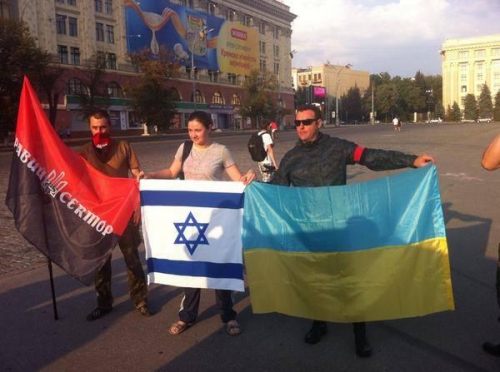
10:29 Publié dans Blog, Eurasie, Européens d'Outre-europe, Histoire européenne, Politique / économie, Ukraine / Novorossiya | Lien permanent | Commentaires (0) | Tags : israël, ukraine, crimée, juifs ashkénazes, khazars, ihor kolomoïsky, r. hunter biden, john kerry, usa, victoria nuland, salopards
22/05/2013
Robert E. Howard & the Heroic
Robert E. Howard & the Heroic
By Jonathan Bowden
Source > http://www.counter-currents.com/
Via : http://euro-synergies.hautetfort.com/archive/2013/05/16/r...
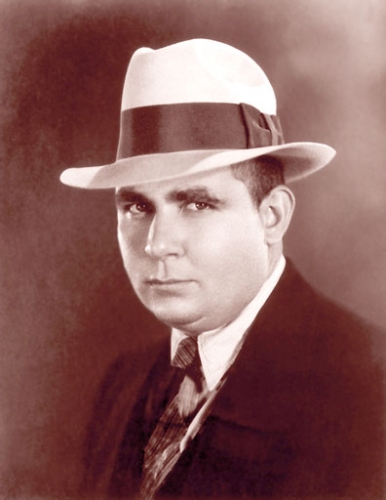
Editor’s Note :
The following text is a transcript by John Morgan of a lecture by Jonathan Bowden, "Robert Erwin Howard : Pulpster Extraordinaire", given at the 26th New Right meeting in London on Saturday, April 17, 2010. The audio is available on YouTube [2].
Unfortunately, significant portions of the audio were cut off at the beginning of the second and third segments on YouTube. For the purposes of publishing this essay in the Pulp Fascism [3] collection, I also removed some 2,300 words of digressive material. If anyone has access to a complete copy of the lecture, please contact me. Also, if you have any corrections or if you can gloss the passages marked as unintelligible, please contact me at editor@counter-currents.com [4] or simply post them as comments below. If and when a complete transcript can be assembled, we will publish it here as well.
I’ll be talking about Robert Ervin Howard. A while back, I had a talk about H. P. Lovecraft, Aryan mystic, and he was one of a triumvirate of writers who wrote for a fantasy magazine called Weird Tales, a pulp magazine ; they were incredibly cheaply produced magazines in the 1930s, with quite good art, graphic sort of art, printed on cheap bulk newsprint paper which was very acidic and fell apart very quickly. And yet three writers, Clark Ashton Smith, Robert Ervin Howard, and Howard Phillips Lovecraft have survived and been inducted into literature. I saw in my local library that Penguin Classics, or Modern Classics, the ones with the grey covers, now include Robert Erwin Howard’s Heroes in the Wind, from Kull to Conan : The Best of Robert E. Howard as a book. Penguin Classics, you see ? So it begins as a pulp, and a hundred years later it’s redesignated as literature.
Howard is a very interesting figure. He only lived 30 years. He was born in 1906 and shot himself with a revolver in the head in his car, outside his home, when he was 30 years of age. We’ll get on to that afterwards. He wrote 160 stories, and the interesting thing about these stories is that they are pre-civilized in their settings, they’re barbaric, they’re ultra-masculine stories, and they deal with many themes which have been so disprivileged from much of mainstream liberal humanist culture that they no longer exist.
Howard had a range of heroes and wrote in most popular genres. He wrote to make money, but he began as a poet, and a poetic and sort of Saturnalian disposition influenced his work and his friendship, by correspondence, with Lovecraft, and to a lesser extent, Clark Ashton Smith, throughout his life. He was of Irish descent, and he was born in a town which became a boom town in the oil booms of the early 20th century in Texas. For those of you who don’t know, Texas is enormous. England fits into Texas twelve times, and Britain, eight times. He was born in Peaster, Texas, and spent some of his early life in a town called Brownwood, a quintessentially small-town American, which is the experience of most white Americans through the settlement of Western civilization in North America. The state capital, of course, is Austin, and you have the big cities like Houston, Dallas, and Galveston.
Now, Howard hated the oil booms, and what happened. When the oil boom happened to Cross Plains, a town of about 1,200 with a mayor and so on, morphed into a large, sprawling, lawless place of about 10,000. An enormous number of prospectors and drillers and criminals and people seeking easy money, all heavily armed of course, came in to Cross Plains. The town burst out beyond its limits in all directions. Oil was discovered everywhere. Fortunes were made, and fortunes were lost.
At the time he was born, lynchings were still in vogue right across the South and the ex-Confederate states. Everyone displayed and carried weapons openly. Sometimes the Rangers, as they were called, a man alone in the sun with a rifle, was basically all you had of semi-ordered civilization. People don’t realize how, if you like, wild and open certain parts of the United States were, certainly until the 1860s, 1870s.
The psychological experience of an intuitive and sympathetic and radically imaginative young man like Howard invests the tall Texan story, and stories of prospectors and ranchers and drillers in the oil industry, and Texas Rangers and Marshals and so on, with an added piquancy. His family supported the Confederacy in a previous generation, and he was mildly descended from certain Confederate commanders.
His attitude towards life is expressed in the stories, which is why they survived. The stories are like lucid dreams. You walk straight into them, and the action begins. Most of them were dreams, and in a way, most critics believe Howard’s an oral creator. He’s in the oral, folklorist, and narrative-oriented tradition. He’s a storyteller par excellence. It’s said he wrote at night, and he used to chant the stories to himself, which of course is a very old Northern European and Nordic tradition. It’s the idea of the skald. It’s the idea that things are illuminated to you, and you speak because you hear the voice.
He had a series of masculine heroes beginning with certain Celtic and Pictish/Scotch-Irish heroes such as Bran Mak Morn and so on; Conan, the hero that he’s most associated with, whose name, of course, is abstracted from Sir Arthur Conan Doyle’s middle name. Howard would take from all sorts of roots, many of which related to heroic, Celtic, Indo-European elements which he imagined to exist in his own past.
He was very influenced by G. K. Chesterton’s dictum at the beginning of the 20th century that myth is the commingling of emotional reality with what is understood to be fact. If you mix together eras and peoples, but you keep the emotional truth of the substance of what we perceive their lives to have been, then you can influence the present and the future. It’s noumenal truth, as Aristotle said 2,000 years ago, the idea that certain things are artistically and emotionally true irrespective of what you think about them factually.
His most famous series of stories, the Conan stories that he wrote pretty much towards the end of his life, were based upon a false yet true/factual world history, the so-called Hyborian Age that he created for himself. Maps of the Hyborian Age have been produced, and they are based upon a realistic sociology, ethnography, geological history, and a coherent view of economics. The country of Aquilonia that Conan ends up conquering at the end of the mythos is partly Britain. The Picts are partly the Scots, of course, covered in woad, barbaric, kept out by a wall, that sort of thing.
War is the dynamic of all of Howard’s fiction, and his attitude towards life was conflict-oriented. His stories are described as ultra-masculine and non-feminist stories. Unkind critics say that they’re Barbara Cartland for men, where all women are beautiful, all men are heroic, where magic works instead of science, and where force decides all social problems, and there is a degree to which the genre which he has founded, called sword and sorcery — of which one supposes J. R. R. Tolkien, an Oxford professor, is the senior representative in the 20th century — is an example of the literary and the heroic in contemporary letters. It’s interesting to notice that the early great texts of the Western civilization, Homer, Beowulf, are deeply heroic, and yet over time, the heroic imprimatur within our language and within our sensibility dips.
It’s said that boys aren’t interested in reading at school, and that 80 to 90% of those who do English literature courses in further educational colleges and universities, the tertiary sector, are women. It’s said that men don’t disprivilege literature, and it’s also said in the West that boys get bullied if they’re regarded, as Howard was when he was younger, as sissies because they read too much, and this sort of thing.
I think one of the problems is that literature that appeals to men is often not the concern of the people who run these sorts of educational establishments. If the sort of people that influenced Howard, people like Noyes, people like Robert W. Service, people like Byron, people like Kipling, people like the heroic imperialist literature of William Henley, who was the basis for Long John Silver in Treasure Island, and was a close friend of Robert Louis Stevenson, a man who could go from bonhomie to murderous rage with a click of your fingers, as Silver does in Treasure Island, of course, because he moves from extreme malevolence to a sort of Cockney paternalism in the same breath. Now, if this literature was normative much further down the social and the educational scale, one would imagine that boys and youngish men would be much more interested in literature as a whole.
Howard essentially sold stories from about the age of 20, certainly 19. He started writing when he was 9, and the interesting thing about him is that his stories are not really derivative. There are connections to enormous writers that were prominent at the time, principally Jack London, but Howard emerged fully-formed and had his own voice from the very beginning.
London’s a very interesting figure, because London’s often been associated, truthfully and yet forcefully, with the extreme Left. Trotsky, of course, wrote an introduction to his famous dystopia of American life called The Iron Heel, and yet London, as George Orwell intimated in one of his essays, was proto-fascistic, and was in many ways a Left nationalist, or even a National Bolshevik, or somebody who would be now described as a Third Positionist. London’s positions were those of socialism from the outside, but also a form of socialism, with and without quotation marks, that was Right-wing rather than Left-wing, and was both national and racial. The interesting thing about London’s discourse is the radicalism of the racialism. [...]
We had at the last meeting, or the meeting before last, a speaker from Croatia called Tomislav Sunić who wrote a book which I edited a long time ago, actually, called Homo Americanus : Child of the Postmodern Age. Among the very important points about that book is his recognition, as a European ex-Catholic in his case, of the Protestant fundamentalist nature of the United States. I think this is a crucial point to understand the United States. The influence of contemporary Jewry in the United States is due to the fact that it’s a Protestant fundamentalist country and many, many Americans really believe in their deep and even subconscious mind that the viewpoint that they are a self-chosen elect to rule by right, by divine imprecation, is so deep in their consciousness, the idea as Pentecostalists sing, that "we are Zion", goes so far down that the difference between their identity and their group specificity and their militant patriotism and that of a small country in the Middle East, and people who didn’t begin to emigrate en masse into the United States until the latter stages of the 19th century, and only really began to have major socioeconomic impact, particularly culturally, in the first quarter to a third of the 20th century makes these things, to my mind, easier to understand.
Now, Protestant fundamentalism doesn’t seem to have scratched Howard very much, and yet one of his heroes is a Puritan called Solomon Kane, and Solomon Kane, who comes between Bran Mak Morn, Kull, and Conan, is in some ways his first major hero. Solomon Kane is very, very interesting because he’s one of these Protestant extremists of the 1620s — well, they’re set before — but that’s when the movement comes to power in the Cromwellian Interregnum in England, and yet stretches way back into the previous century, and yet in a strange way he’s an outsider, even in that movement.
Kane dresses all in black with a little white sort of a bib round his neck. He’s extraordinarily heavily armed, as most of the Puritans were, had a sword on either side, had pistols in the belts, had a knife in the boot, because you were fighting for the Lord, you see ! "I am the flail of the Lord". They had these endless quotes, largely from the Old Testament, but to a degree from elements of the New, which they would roll out on occasions when they had to justify what they were about to do, and that their instincts wanted to do, in a way that nothing could restrain them.
There’s a famous moment in Northern Ireland, when James Callaghan was Northern Irish Secretary under Wilson in the late 1960s, slightly sympathetic to Social Democratic, Catholic nationalism in Northern Ireland, as part of the local movement was then, but in a very moderate way, and then said in a concerned and perplexed way to the Reverend Ian Paisley, who softened a bit as he’s got older, and in turn wanted to be Prime Minister of Northern Ireland before he died, he said to Paisley that, "But we’re all the children of God, Reverend", and Paisley said, "No ! Nooooo !" He said, "We are the children of wrath !"
And that is the attitude of those Puritan extremists, loyal to the Old Testament in many ways. Men of a sort of always implacable fury, and elements of their dictatorship, under Cromwell of course, were increasingly maniacal. The banning of Shakespeare, our greatest writer. When an English national revolutionary movement bans the country’s greatest-ever writer, you do begin to think there’s something slightly wrong, don’t you, no? Similarly, the flogging of actors under the New Model Army in Newcastle for performing Shakespeare, these were the latter stages, these were the Buddhas of Bamiyan moments, weren’t they really, of these English revolutionaries of the 1640s, or what was really going on.
Now, the sort of Puritanism that Howard puts into this character is different, because Howard’s character, Solomon Kane’s a loner, a man who always fights for his own cause, but when he hears those almost voluptuous pagan stirrings in the background, it’s always Christianized, and it’s always put in a Protestant context.
Cromwell once had a phrase : "I disembowel you for Christ’s love". And that’s what he said in the Putney Debates. When the parliamentary side won the Civil War, the whole New Model Army, which of course was a revolutionary army of that time — no brothels, no drinking ; in the Royal army, you went to the back, and there was endless entertainment at the back of the battlefront. With the Puritan armies, there was none of that. You went to the back, and there was no drinking, and there was a chap ranting at you about whether you’d sinned that day.
It was less fun, but at the same time, when they raised their pikes together, not in a higgledy-piggledy way, or one bloke at the back didn’t want to, but they raised them together, as one unit. They would all chant, "God is our strength". Cromwell understood as Shaw said early in the 20th century that a man who has a concept of reality that is metaphysically objectivist, a man who believes in something as absolute truth is worth fifty men. And that’s the type of revolutionary ideology that these people then had.
But at the Putney Debates, there was a debate about how the country should go, and Ireton and the other supreme commanders were there. Under Cromwell they committed regicide of course, they killed the King, so the future of the country was theirs. There was another tendency known as the Levellers, who in some ways of course were retrospectively the first socialists, so-called because they wanted to level down distinctions. There was an even more radical movement called the Diggers that came along later. But Cromwell told Ireton, "Either we hang them or they will hang us". And that’s the Levellers. And at the end of the Putney Debates, the army moves aside, the Cromwellian regime has been established, and the Levellers are hanging on the trees. So Cromwell had got his way.
The importance of Protestantism to the United States, in a complicated way, is the reason why there has never been an extreme Right-wing movement of any great success in the United States, except in a localized way like the Klan to deal with particular circumstances at a particular time. America, you could imagine, is ripe for such a movement, as Australia always has been, and yet there has not been one, not really. Not a national movement. There were figures in the 1930s : there was the Silver Shirt movement ; there were Father Coughlin’s radio broadcasts, which had all sorts of interesting ramifications in American life, as Catholic priest giving the radical Right to essentially a Protestant nation, which of course set up a cultural tension and contradiction in and of itself.
There are also interesting liberal counterparts to this. Most people remember Orson Welles’ treatment of H. G. Wells’ The War of the Worlds, when the Martians invade New York, and then he admitted it was a fiction retrospectively, and tens of thousands of ninnies leave New York because they think the Martians are landing. "Gee, they’re up the road !" And they get the pickup truck, and they go. And then they broadcast later that it was all a stunt and it was an artistic show, and people shouldn’t take it literally.
Welles deliberately did that to discredit Coughlin. He said afterwards, "We did it because too many people believed everything that fascist priest was telling them on the radio, so we proved them, don’t believe what you hear that comes out of the radio". And that’s a purely sort of aesthetic response to the impact that sort of thing had.
Yet still movements lie there, Aryan Nations, National Alliance, these sorts of movements, very small, very isolated, geographically and in other ways. National Alliance was quite interesting because it morphed from Youth for George Wallace. That’s how it started, and then it took various transformatory steps until it emerged as a very hard-line group under the late Dr. William Pierce at a later date.
And this culture of extreme Protestantism — which contained elements which are to the Right of almost anything you’ve ever seen, mentally, psychologically, conceptually — seems partly, because, of its extreme individualism, to be incapable of generating radical Right mass movements. Most Americans still adopt a deliberately materialist, liberal humanist and individualist way of looking at life. They divide into two basic political parties that have switched over during the course of the last two centuries. Don’t forget in the 19th century the Republican Party was the party of the nominal Left, and the Democrats were red. The Democrats were conservatives who supported states’ rights — not the right to secede, but certainly the right to own slaves. The party led by a man who’s proud to have ex-slaves in his own family, the present President, would have actually, in a strange sort of way, not been able to join the Democrat Party in the 19th century, and yet the switch around, that you can vote in each other’s primaries, and that "Isn’t everyone a Democrat ? Isn’t everyone a Republican ?", hence the meaninglessness of the names, adds to this sort of feeling that you get in the contemporary United States that all that matters is money and social success. America’s very important, because America, of course, dominates this country now culturally and geopolitically. We can’t almost do anything without them, and all the wars that we’re now dragged into are due to American hegemony.
But the repudiation of parts of American power should never blind ourselves to the cultural excellence of what many white Americans have achieved, both for their group and individually. If you actually look at all the radical Right literature, the alternative side of an isolationist and American nationalist posture, there is some great work there by people like William Gayley Simpson, who wrote an enormous book of over a thousand pages called Which Way Western Man ?Again, without going on a tangent too much, he’s a very interesting man because he’s an ex-Trappist monk. He began as a liberal and an aching humanist whose heart bled for the Third World and who had all the correct sort of UN-specific attitudes, and gradually he changed step by step by step, and he ended up, if not a member then a fellow traveler, of the National Alliance. That is quite a change. That is quite a leap. But it is also true that tens and tens of thousands of educated Western people who are liberal-minded now will have to change their views, will have to begin to change their mindset in this and the coming generation if Western civilization is virtually not to slide off the cliff. [...]
Now, to return to Howard, Howard’s writing, by the end of his sort of period, and don’t forget that he was sort of mature at 22 and dead at 30, he produced 160 stories, 15, 16 volumes basically, and other fragments. There was an unfinished fantasy novel called Almuric, the early Celtic stories, Bran Mak Morn and the others morphed into Solomon Kane. There were associated Westerns and humorous stories. There were some detective stories, but he never particularly liked that genre, although his attitude towards life was hard-boiled. There were also some Crusader stories as well, and some slightly mythological stories about a sort of white man in the East called Gordon, presumably named after the Gordon of Khartoum, but actually an American, and these were the old Borak stories set in Afghanistan, where he goes native and fights along sort of inter-tribal and group-based and clan lines in that context.
Howard’s attitude toward politics is quite complicated and not entirely logical, and primarily emotional. He supported the New Deal because he believed the American economy had collapsed and something needed to be done. He argued strongly with H. P. Lovecraft, he was more of a "reactionary" in these respects, a classical liberal, didn’t like the Roosevelt and the people around him, didn’t like intervention in the market in that sort of Protestant, American way. He felt that you fail commercially, you suffer punishment, because God has chosen that punishment for you. Destiny involves sacrifice.
The irony is that the banks have been saved in the United States by Bush, costing trillions of dollars, but the metaphysic which founded the country would have allowed all of those banks to fail, all of those banks to fail and all those bankers to hang themselves and throw themselves off buildings. That happened in 1929, and then you rebuild quickly, because the pure, American, sort of Randian view is that capitalism is an insatiable animal and vortex of energy, and if people go to pot, if people lose everything they have, if as a trader, an insurance agent I vaguely knew years ago at Lloyd’s, lost all his money in the Names scandal, and goes there on a Sunday and unlocks the door and goes down to the toilets and sits there and drinks Domestos and kills himself and is found by the cleaners, Africans probably, on Monday morning, and his senior partner in Lloyd’s said, "Well, that’s capitalism for you". And that’s it! What goes up goes down! This was the view that founded the United States
And yet the irony is, why have these Western politicians intervened, why have they saved these structures: few collateral damage moments, Lehman Brothers; they’ve charged Goldman Sachs with fraud. Well, that’s a bit late, isn’t it, really ? And yet why have they intervened ? They’ve intervened because of the voting danger. The fact that there are radical parties on the fringe of all Western societies, everyone knows who they are, that people could vote for in a major moment of fiscal/physical/moral/emotional distress, and the whole Western clerisy that’s bought into the contemporary liberal package knows that. Many of these parties are actually quite moderate in relation to the traditions they come out of, but they terrify the present establishment that often sees the more populist ones as just the start of something worse that’s coming behind, see ?
And there’s also a certain guilt there as well, because these people are well aware of what’s happened to Western societies because they’ve been running them for 70 years. This idea it’s all an accident, "I didn’t really mean it," and the turning of Western societies into a sort of version of Brasília, en masse with a tiny, little elite at the top that’s creaming most of the goodies off for themselves.
I’m not an egalitarian in any sense, but it’s interesting to note that this country’s slightly more unequal now than it was in 1910 in terms of 90% of all equity and all capital and all wealth is owned by the top 10%, and the top 2% of that 10%, and yet the society has changed out of all recognition, 1910 to 2010. Most Western people born in the first [unintelligible] part of the 20th century would not believe the transformation of the West just in a lifetime, basically, after they died. And it occurred because of the extraordinary wars, largely amongst ourselves, that we fought in the 20th century that also gave outsider ideologies like Communism their chance to vulture-like pick over the defeat and the carrion corpses of what was left.
The heroic attitude towards man and society that Howard’s work depicts exists virtually nowhere except as play and pleasure in computer games for boys and adolescents, in comic books and so on. The areas of life where that sort of ethos remains, the armed forces, the army, navy, and air force of most contemporary Western societies, particularly their specialist or elite forces, in Britain the Special Air service, the naval equivalent the Special Boat Service, and all of those novels, these Andy McNab sort of novels about the heroic and this sort of thing, which are lapped up by a largely male audience, largely male audience. Other than that, there is not really the imprimatur of the heroic in Western life, the extraordinary demilitarization of Western life, hardly ever see a policeman, hardly ever see soldiers. When do you ever see British forces? And that’s because they’re always outside the country as globalist mercenaries fighting American and Zionist wars all over the world. They’re never seen here, and many of their commanders don’t want them here, either, because they regard parts of British life as so irretrievably decadent that they actually want to keep their troops away from much of what’s happened in relation to the society. There are towns in Berkshire where a lot of the military stay, like Arborfield and these sorts of towns, where it’s quite clear there’s a sort of military zone and there’s a civilian zone. You all know what British towns are like on Friday, Saturday night : no police; they’re all in their vans; they’re all in the station ; they’re at home; they’re filling in forms. They wear yellow bibs when they’re out, but when you want one, you can never see them, can you?
And a lot of our older people are, let’s face it, frightened to go into town and city centers on Thursday, Friday, Saturday, certainly after 6. And why is this happening ? It’s partly happening because the concept that Howard’s fiction deals with, masculinity, has been completely disprivileged, completely demonized and rerouted in contemporary liberal life. Hostility to masculinity, certainly as defined, say, before 1950 is very considerable, and it’s had a very corrosive effect ideologically, aesthetically. Men can have their own pleasures in various zones, which are sort of sneered at and disprivileged, but the centrality of the heroic as a myth for life has largely gone.
The way to explicate something like Howard, as I did with Lovecraft before, is to maybe to concentrate on one of their stories. With H. P. Lovecraft I chose "The Dunwich Horror", and with Howard I would choose "Rogues in the House", which was published in Weird Tales in the early ’30s. One fantasy critic has called it the greatest fantasy story of the 20th century, but that’s just one individual’s opinion. It’s relatively early in the Conan series.
Conan is a northern barbarian, and because everything’s fused together in Howard, he’s got slightly Nordic, Germanic, and slightly Celtic traits. He’s an outsider, but he has a clean code of masculine barbarism. Civilization is always seen as slightly weak-kneed and sybaritic to Howard. And yet at the same time, barbarism has its own inner order.
Now, there are counter-factual and countercultural elements there that will be used by social anthropologists in a totally different context, like Lévi-Strauss and others, in the middle of the 20th century, but Howard means it in a different way.
There’s a Left-wing streak to Howard, as there was to London, a siding with the outsider, with those ruined by capitalism, by tramps. London’s book about the East End is one of the most extraordinary books about mass poverty before George Orwell’s Down and Out in Paris and London and "How the Poor Die", were quite extraordinary works. A poor little hospital in Paris before any sort of socialized medicine, where those who were in the bottom 10%, their corpses were just thrown on the ground! And they died in agony, and they kick you away and put another one on top. This is how the poor die! And Orwell said to this chap in this hospital, "But look at the state they’re in !" And he said, "Well, they gave up slavery. Here’s another batch." This was the attitude then. This is why things like the labor movement, even in the United States in an attenuated way, were created, to correct that imbalance as it’s seen from the bottom.
The far Right, of course, always wanted not the class war of the contemporary Left, but to socialize mass life in a way that preserved the traditions of the civilization of which we’re a part, that brought on what was excellent about the past and yet realized that the 50% of people who own no capital, the 50% of people who are largely excluded from all center-Right parties’ definition of patriotism, are part of the country, are part of the nation, fight the country’s wars for the most part when they’re asked to do so, and therefore have to be within the remit of social consideration in relation to education, health, and other matters.
My explanation for Howard’s support of the New Deal and that type of politics largely is along those sorts of lines. It’s the sort of apolitical chap who likes country and western in a Midwestern state and supports socialized medicine up to a point, as long as it’s not too costly, doesn’t like Obama, and supports our troops, you see. But it’s in a sort of apolitical zone which has got no real knowledge above that. Some of the instincts are right, but the ideological formulation in which that takes place is likely wrong, because even these wars — do you think Iraq was fought for ordinary white Americans ? Do you think Afghanistan has anything to do with ordinary families living in Nebraska or Nevada or Kansas ? None of these wars have anything to do with them at all. Even the Black Muslims have worked out that white gentiles largely are second-class citizens now in the society that they created. But that’s another story, and I’d just like to concentrate on Howard.
This particular story concerns Conan from the outside, Conan as perceived by an aristocrat and fop called Murilo. Howard’s a little bit of a Nordicist. He thinks southern Europeans are a bit foppish in comparison to northern Europeans. There’s a streak of this, and some of the society is seen to be Italy, Corinth, Zamora, but they’re not. But they seem to be Italy.
Well, there’s this Italian city-state that’s run by a corrupt priest called Nabonidus, who’s known as the Red Priest. These myths are set, these stories, mythologically encoded, are set before the beginning of recorded history and after the sinking of Atlantis, possibly a fantasy itself. So he sets them far back enough that he can do whatever he wants with them, but at the same time he can import a large amount of retrospective historical insight.
The interesting thing is the Machiavellianism of the politics of these stories. All of these societies are run extremely ruthlessly and are run completely for the power interests of the people in charge. The nationalities don’t really matter, but they are, if the gloves are off, as marauding and vengeful as their own leaders who they represent at a lower level. Truly Howard believes, with the Roman dictator Sulla, that when the weapons are out, the laws fall silent.
Now, Murilo is a courtier, a relatively corrupt courtier, in this city-state, and Nabonidus comes to him one day at a royal council meeting and gives him a small casket that contains a severed ear. And this is a warning, as it would be if a Renaissance prince in post-Medieval Italy, gave it to a rival, and it’s, "Clear off. Get out of the city-state as quickly as possible. I’m giving you one day". And Murilo wonders what he’s going to do. He can flee, but he’s not a coward, why should he leave his own city ? And in any case he’s got lots of rackets on the go, you know, so he wants an out, and he thinks, "I need to assassinate Nabonidus", who runs the drunken King as a sort of priest/philosopher-king/leader of a native death cult within the city like a puppet master controls his dog.
So he needs a vassal, and he finds it in the prisons of the city where a young, heathen, northern barbarian has been captured and lays there in chains after various escapades and thefts, and this is a young man of 19 called Conan, who’s twice the size of a normal man. All Howard’s heroes are physically enormous, and all incredibly violent, although they all have an honor code of their own which is interesting, particularly towards the end of the story, what you might call an innate code of masculine morality and honor which is part and parcel of natural law.
The Social Darwinian view that was spread throughout mass culture, particularly these types of fictions in the late 19th and early 20th centuries, is not entirely true as all prisons and all armies testify, there’s a code of honor and morality even in very extreme male behavior. Rapists are always amongst the most disprivileged in any prison. Men who attack and feed on women, for example, in very all-male and male-concentric cultural spaces are always disprivileged, always disliked, and that’s because of innate feelings about how, in a very traditionalist way, what we call partly a sexist way now, men should treat women, and these things pre-date all modern ideas and are partly innate, and in some ways, because Howard is such an instinctualist, he brings these sorts of forces to the fore.
Now, Nabonidus wants Murilo to leave the city. Murilo hires Conan to murder Nabonidus. Nabonidus is [unintelligible]. Conan is in his cell sucking some beef off a bone, and besides, Nabonidus is an upper-class priest — so why not murder him for money, he’s an adventurer ? — so he decides to go with Murilo on this plot. As always with Howard, a synopsis never does justice to the sort of the lucid dreaming of the story itself. Howard always said that he was there and that Conan was next to him like an old soldier dictating his stories, some of which will be tall stories as well.
Now, Murilo then hears that Conan has been captured because the guard that he bribed to get him out of the prison has been arrested on another offense. Conan’s actually escaped in another way and joins Murilo later. Murilo, desperate, a Borgia without any sort of a family fortune decides to murder Nabonidus himself, so he creeps up to his fortified estate, which is on the edge of town, described in this Gothic way — it’s dark, it’s sepulchral, it’s moonlit, there’s an enormous dog that roams the grounds.
Remember Conan Doyle’s stories ? There’s always this enormous mastiff that the villain has that roams the grounds to bring people down, but Watson shoots on Holmes’ behalf usually at the end. In The Hound of the Baskervilles, which is extraordinarily amusing because the hound is covered with phosphorous to make it glow in the dark when it races after some poor chap who’s looking back, terrified, on a sort of West Country moor, and yet phosphorous is so poisonous that, the dog licks itself all the time, one lick and its dead. But these stories are metaphorical. They’re extreme exercises in the imagination. They’re not concerned with these pettifogging details of which critics make too much.
Now, Murilo creeps into the garden and, horror of horrors, what does he find ? He finds the dead body of the dog, and it looks as though it’s been savagely mauled in a way by something he doesn’t understand, by some weird thing or ape or monster. He then proceeds into the house and finds much of it wrecked. Nabonidus is nowhere to be seen, and one of his servants, Joka, has been murdered.
Suddenly he gets into the inner chamber of Nabonidus’ villa, which is modeled on a Renaissance palace essentially, and he sees the Red Priest, so named because he wears this red cowl, sitting on a throne, made of alabaster, and everything’s heavy and ornamental, a bit like those Cecil B. DeMille films from the ’30s, everything extraordinarily overdone and luxuriant. And he creeps up to Nabonidus to stab him, and the figure turns, and it’s a were-thing, or a monster, something of the imagination. It’s not human at all, simian rather than human. And Murilo faints, and then the story closes.
This story’s in three acts.
Traditionally, like a lot of Western drama, like Dante's Inferno, Purgatory, Paradise, you’ve got this three-pronged triadic element, the thesis, the antitheses, the synthesis at the end. So that’s the first part.
The second part is Murilo awakens in dungeons or interconnected corridors underneath Nabonidus’ house, manse, mansion. He crawls along a corridor and somebody hisses, and it’s Conan. He’s come into the house to murder Nabonidus because Murilo’s going to pay him, and because he’s a member of a cult that he dislikes and so on. Murilo scents his hair, like the young aristocrats of his era, and Conan’s senses are so acute that he detects that with his nostrils, and that’s the reason he doesn’t attack him in the darkness.
They both decide to, they swear loyalty to each other — don’t forget this is an oral culture where bonds and legal sanctions are expressed orally. Howard despised the element of modern life where people say anything they want just to get their own way at any particular time. In pre-modern, say Nordic societies, the oath or something which is given verbally with strength is as binding as any legal document ever could be, even more so.
Conan and Murilo proceed looking for Nabonidus. They come out into the body of the house, which as I said resembles just sort of Renaissance, Florentine palace, and they see Nabonidus stripped, semi-naked and wounded, in a neighboring corridor, and they wonder what has replaced him up inside the house.
And what has happened, as he in a dazed way explains once he returns to full consciousness, is that his servant, who’s this ape that he’s taken from one of the outlying countries in Howard’s imaginary kingdoms, has supplanted him as the master in the house. Howard, to a moderate degree, believed in science, believed in evolution, it was very much almost a cult then, as was eugenics, and Thak as he’s called, this ape-man who wears the red because he’s supplanted the human he wanted to supplant, has thrown his master, Nabonidus, into the pit and has seized control of the house. Thak sits, waiting for them to come out of the pit because there’s a bell underneath there in the pits that they’ve crossed, a trap basically, and he knows humans are down there, and he’s waiting for them.
Nationalists emerge. There’s an interesting political element here, because Nabonidus is a very corrupt ruler and has the King in his thrall, so nationalists of the city-state — you could be a nationalist and of a city-state because it was the unit of civilization essentially, and a country would be city-states federated together. Attempts to assassinate Nabonidus in a way that Murilo wanted to, Thak deals with them. The story fast-forwards in a very filmic way, because Howard is a visualizer. The male brain is visual and always thinks in images. And these sorts of stories are extraordinarily cinematographical in their nature and their forward, pumping lucidity.
Thak senses that they’ve come up from under the ground, and there are interesting pseudo-scientific elements. The Red Priest, Nabonidus is a scientist and a mage and a magician combined. It’s Religion and the Decline of Magic in some ways if you view it academically. He has this construction of mirrors whereby from one room you can reflect light through tubes that contain small mirrors, and it ends up being able to look into another room, so you can actually look round corners, and they can see Thak, and he can see them.
Because he needs to dispose of the bodies of the nationalists who’ve come into the house, Thak disappears for a time, and Conan and the others seize their chance, and they go up. Nabonidus becomes terrified when all the doors are locked and he can’t find the weapons they need to fight against his servant who’s turned against him.
In the end, Conan has to face off against Thak in this quite extraordinarily violent scene. Howard was one of the most brilliant writers of physical force and conflict between men in the 20th century. There’s little doubt about that. It’s so immediate you’re almost there and it is essentially visual. Conan and Thak have this clash-of-the-gods-type of titanic duel with each other, much like a scene from Homer basically, Hector before the walls of Troy. Thak is done down in the end, and Conan, half-dead, is saluted by Murilo.
Nabonidus then tries to betray both of them, and Conan does for him, really, with a stool. He whips up a stool and throws it into his head, and he falls, and all Conan can say is, "His blood is red, not black," because in the slums of the city they said the Red Priest’s blood was black because his heart was black, and Conan’s a barbarian and a literalist, you see. "His blood isn’t black."
There’s an interesting moment when Conan is helped by Murilo because he’s so hurt and wounded in the fight with Thak, and he pushes Murilo aside and says, "A man walks alone. When you can’t stand up it’s time to perish". That’s not an attitude you heard from the Blair government too often, is it ? These are pre-modern attitudes, you see. As somebody on Radio 4 would say now, "But that’s a dangerously exclusionist notion. What about the ill, what about the weak ?" And of course in that type of barbaric morality, the strong look after the weak, but only in an assent of being and natural law which is codified on the basis of the morality of strength. That’s what those sorts of civilizations thought and felt.
And the other interesting thing is that he looks down on Thak, this sort of beast, sort of man that he’s killed, and he says, "I didn’t kill a beast tonight, but a man! And my women will sing of him". And there’s two cultural views of these sorts of things. One is to regard them as remarkable pieces of creative imagination. There is other is to sort of laugh and sneer at them, and think that they represent old-fashioned values that we’ve thankfully gotten rid of, or moved away from.
The stories, with the exception of the Kane stories, are all pre-Christian in the most radical of terms, and yet pre-liberal and liberal secular, which of course in the modern West is what’s replaced Christianity. I would say that contemporary Catholicism is rather like the Protestantism of yesteryear, and Protestantism has become liberalism, and liberalism has morphed, strangely, without the Protestantism that gave it a moral compass, into a form of cultural Marxism, and that’s what we have now.
And yet Howard’s stories are very, very interesting and very dynamic and very much appeal to an imaginative element in certainly a lot of men. The belief in self-definition, the belief in the heroic as a model for life, the belief in strength but with an honor code that saves it from wanton exercise in strength without purpose, and the beliefs that one is part of even a tribe or a community.
In the stories, Conan’s a Cimmerian. He’s from a northern group. He’s always introduced, he’s only got one name, he’s so primal, he doesn’t have any other names. Conan. Like Heathcliff inWuthering Heights, he only had one name. Heathcliff, he doesn’t need any other names. He’s just a force, you see? A force of the female imagination, which is what he is. And in a strange way, the way in which he’s described in that novel by Emily Brontë is very similar to the way Conan’s described, but Conan’s a bit more beefed out, a bit more muscular.
Many films have been made, many TV series have been made, there’s a Conan industry in the 20th century. What Howard would have thought of all that no one knows. He’s there, possibly on a slightly lower tier, but with Tarzan and Doctor Who and James Bond and these other iconic sort of mass popular fantasy figures. Yet in all of them, certainly in this sort of material, there’s a truth to experience, there’s a vividness, there’s a cinematographical and representational reality, and there’s a concern with courage, masculinity, and the heroic which is lacking from most areas of society, and there’s also an honor code, a primitive morality if you like, which goes with it and gives it efficacy and purpose.
The other thing which he differentiates in this type of literature is respect for the enemy. When Terre’Blanche was murdered, I noticed liberals on the BBC giggling and sort of laughing and thinking it was all a jolly joke. These are people who are against the death penalty and believe that murder’s a terrible infraction against human rights, jurisprudence, and all the rest of it. But the sort of cultural space that this work comes out of respects the enemy. Kills the enemy, respects the enemy, which of course is a soldier’s emotion. Many who’ve fought in wars don’t disrespect the enemy. They know what they’re like. British soldiers who’ve fought in the Falklands, American soldiers who’ve fought against Islamist militants, and even some of the militants themselves when they’ve fought against Western warriors, understand the code of the soldier and the code of the warrior on the other side. But many of these men are spiritually, fundamentally similar men in a way, born in other groups.
Men will always fight with each other, and they’re biologically prone to do so. How, in an era of mass weapons of destructive warfare, some existing and others not, that is to be worked through. It is a part of the destiny of the relationship between groups and states. But the hard-wiring that makes men competitive and egotistical and conflict-oriented is ineradicable and irreducible, and modern liberal societies which are based upon the idea of inclusionist love without thought of conflict are sentimental to the point that they will fall apart, bedeviled by their endless contradictions.
And I personally think that if you inculcate yourself, with a bit of irony and estrangement, from some of the elements of the culture of the heroic that certainly subsisted as mainstream cultural fare in our society before 1950, you have a different attitude towards what spews out of the telly every evening, and you have a different attitude towards the sort of culture that you’re living in, and you have a different attitude towards great figures in your own group and even in others, and you have a different attitude towards yourself and the future.
I give you Robert Ervin Howard, 1906 to 1936, a man who walked alone but spoke for an element, not just of America, but what it is to be white, male, Western, and free.
Thank you very much.
Jonathan Bowden
(Transcription by John Morgan).
Article printed from Counter-Currents Publishing: http://www.counter-currents.com
URL to article: http://www.counter-currents.com/2013/05/robert-e-howard-a...
URLs in this post:
[1] Image: http://www.counter-currents.com/wp-content/uploads/2013/0...
[2] YouTube: https://www.youtube.com/watch?v=1ucBGENZjnM
[3] Pulp Fascism: http://www.counter-currents.com/2013/04/forthcoming-from-...
[4] editor@counter-currents.com: mailto:editor@counter-currents.com
15:23 Publié dans Blog, Européens d'Outre-europe, Livres - Littérature | Lien permanent | Commentaires (5) | Tags : robert erwin howard, littérature
03/05/2013
Jeff Hanneman - 2 mai 2013


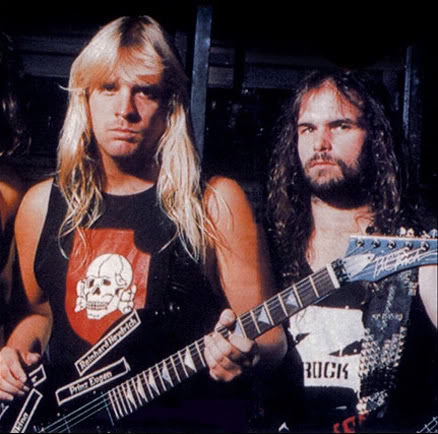
Jeff Hanneman
( 31 janvier 1964 / 2 mai 2013 )
12:10 Publié dans Blog, Européens d'Outre-europe, In memoriam, Musique | Lien permanent | Commentaires (0) | Tags : jeff hanneman, slayer, in memoriam
01/05/2013
And Thus In Nineveh
And Thus In Nineveh
Aye ! I am a poet and upon my tomb
Shall maidens scatter rose leaves
And men myrtles, ere the night
Slays day with her dark sword.
Lo ! this thing is not mine
Nor thine to hinder,
For the custom is full old,
And here in Nineveh have I beheld
Many a singer pass and take his place
In those dim halls where no man troubleth
His sleep or song.
And many a one hath sung his songs
More craftily, more subtle-souled than I ;
And many a one now doth surpass
My wave-worn beauty with his wind of flowers,
Yet am I poet, and upon my tomb
Shall all men scatter rose leaves
Ere the night slay light
With her blue sword.
It is not, Raana, that my song rings highest
Or more sweet in tone than any, but that I
Am here a Poet, that doth drink of life
As lesser men drink wine.
Ezra Pound
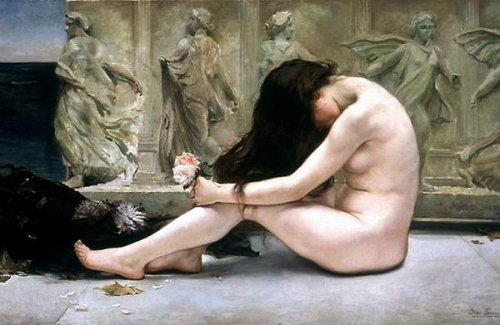
La tombe du poète, par Pedro Sáenz Sáenz (1863-1927)
21:53 Publié dans Blog, Européens d'Outre-europe, Poésie | Lien permanent | Commentaires (0) | Tags : ezra pound, poésie
23/04/2013
La spécialisation, c'est bon pour les insectes...
« Un être humain devrait savoir changer une couche-culotte, planifier une invasion, égorger un cochon, manœuvrer un navire, concevoir un bâtiment, écrire un sonnet, faire un bilan comptable, monter un mur, réduire une fracture, soutenir un mourant, prendre des ordres, donner des ordres, coopérer, agir seul, résoudre des équations, analyser un nouveau problème, répandre de l'engrais, programmer un ordinateur, cuisiner un bon repas, se battre efficacement, et mourir bravement. La spécialisation, c'est bon pour les insectes. »
Robert Heinlein

15:21 Publié dans Blog, Européens d'Outre-europe, Philosophie | Lien permanent | Commentaires (0) | Tags : robert heinlein, citation
04/03/2013
Les idées difficiles d'Ezra Pound
Les idées difficiles d'Ezra Pound.
Son engagement aux côtés de l'Italie fasciste a été généralement mal compris. Il lui valut d'être enfermé, après la guerre, dans une cage de fer, à Pise, puis interné dans un hôpital psychiatrique, aux États-Unis. C'est de cette époque tragique que datent peut-être ses Cantos les plus émouvants, qui énoncent, pétris de pudeur, notre incomplétude radicale affleurant sous la tragédie de l’histoire.
"L'unique possibilité de sortir victorieux du lavage de cerveau, c'est d'affirmer le droit que détient tout homme à ce que ses idées soient jugées une à une." (Ezra Pound)
Ezra Pound, grand parmi les grands de la littérature contemporaine, serait célébré comme tel s'il ne s'était laissé piéger par le démon de la politique, généreux en aléas malheureux. "Si un homme n'est pas prêt à affronter un risque quelconque pour ses opinions, ou bien ses opinions ne valent rien, ou bien c'est lui qui ne vaut rien" (01). Pound a été honnête. Avec ses idées. Et avec son destin.
Comme c'est la règle pour tous les personnages qui suscitent la polémique, les lecteurs de s'approchent de son œuvre armés de leurs propres préjugés et prétendent l'enfermer dans ce carcan. Les fascistes le lisent pour y chercher une doctrine qui sied à leurs étendards, doctrine qui ne se trouvera nulle part dans les écrits du poète américain. Les anti-fascistes le lisent pour y trouver les preuves qui justifieraient le crime qu'ils commirent sur sa personne. Comme si émettre des idées était passible de poursuites judiciaires. Ni les uns ni les autres ne pourront prétendre découvrir le vrai Pound, celui qui est réellement intéressant : ce Pound inclassable, toujours actif et "prêt à être passé par les armes avant d'acquitter quelque forme d'impôt que ce soit" (02). Infatigable chercheur de nouvelles formes d'expression, paladin des poètes ignorés qui, demain, seront exaltés, cet être de génie fut, tout au long de sa vie, obsédé par l'influence de plus en plus prégnante qu'exerce l'économie sur la vie moderne.
Le poète et l'économie.
Tout débuta quand Pound avait 15 ans. À cet âge déjà, il avait décidé qu'à 30 ans, il devait "connaître, dans le champ de la poésie, plus que tout autre homme vivant" (03). Pour satisfaire cette peu commune ambition, il s'embarqua pour l'Europe en 1906, muni d'une bourse pour étudier l'œuvre de Lope de Vega. Il retournera encore aux États-Unis, mais deux ans plus tard, il dira définitivement adieu à "l’american way of life", à cette Amérique provinciale devenue trop étroite pour lui et où ce qui pouvait avoir la forme d'une aristocratie n'en était en fait qu'une parodie fondée sur la puissance du dollar, où l'art ne pouvait être indépendant de la puissance de l'argent. Le classicisme, Dante et les peintres de la Renaissance le fascinaient. Il demeura deux ans en Angleterre ("où moi, jeune et ignorant, j'étais considéré comme un érudit") (04) et quatre ans en France, deux pays qui le désappointèrent par la léthargie de leurs peuples et de leurs gouvernements. "En 1920, je n'ai rien vu d'autre en Europe que des banquiers sans scrupules, quelques bandes de marchands d'armes et leurs instruments respectifs (des êtres humains)" (05).
En 1924, il se rend, avec son épouse l'Anglaise Dorothy Shakespear à Rapallo en Italie mussolinienne. À partir de 1926, le poète fera l'éloge publique de la figure du Duce. Ezra Pound n'est nullement fasciste tout en ne cessant de l'être. Il n'est pas antisémite mais ne cesse de l'être également. S'il écrivit textes ou poèmes en faveur de Mussolini ou d'Hitler, jamais il ne milita au Parti Fasciste ni entretint des relations suivies avec ses instances ; jamais il n'en obtint la moindre faveur et ne se considéra pas un seul instant comme personnellement hostile aux États-Unis, sa patrie.
S'il écrivit contre l'influence juive dans l'économie moderne, il cultiva aussi des amitiés sincères avec des juifs, dédicaçant son célèbre Guide to Kulchur à "Louis Zukofsky, lutteur dans le désert". Pound reste rétif à toute classification mais, dans sa vie, ne ressentit jamais la moindre crainte de se compromettre constamment et systématiquement.
"Se compromettre comme peu d'hommes peuvent se le permettre pour la simple raison qu'en le faisant, ils pourraient mettre en péril leurs revenus financiers ou leur prestige ou encore leur position sociale en l'un ou l'autre milieu" (06).
Si les détails de son emprisonnement et les mesures répressives qu'il a subies sont relativement bien connus, en revanche, peu d'auteurs se sont penchés sur les théories économiques énoncées par Pound. On les tient généralement pour marginales, insignifiantes. Cette omission donne involontairement une image tronquée de la personnalité du poète, le convertissant chaque fois en un personnage fictif correspondant aux desiderata de ses observateurs. Nous-mêmes, avouons-le, n'aurions pu connaître quoi que ce soit d'objectif sur ses théories économiques, si quelques éditions pirate italiennes ne nous en avaient révélé les arcanes. Pound lui-même (et il est le témoin privilégié !) a déclaré que le thème de l'économie a revêtu une importance toute spéciale durant sa vie entière et plus particulièrement durant la seconde moitié de celle-ci.
Pound fonde ses conceptions en économie sur les théories de C.H. Douglas et de Silvio Gesell. Le colonel écossais Clifford Hugh Douglas était un économiste autodidacte qui avait imaginé une réforme monétaire baptisée Social Crédit, rejetant à la fois le fascisme, le communisme et le capitalisme libéral. Douglas — que Pound connut personnellement en 1918 — proposait le contrôle public des activités bancaires par un régime de démocratie parlementaire. Quant à l'Allemand S. Gesell, qui fut Ministre des Finances dans la République Socialiste Bavaroise en 1919, il proposait, dans ses œuvres (la principale étant Die natürliche Wirtschaftsordnung, 1910) la restauration de la valeur d’usage au détriment de la valeur d'échange avec, en définitive, une abolition de l'argent. Éluder les préoccupations économiques de Pound, comme l'ont fait plusieurs historiens contemporains, trahit un a priori, une mauvaise foi stupéfiante dans l'approche et l'analyse de l'œuvre de Pound. Alors que l'économie est si présente chez lui, même dans ses poèmes les plus brillants…
Pour Pound, tout est contaminé par un mal, par le "cancer du monde" qui est l'usure. À ses yeux, le fascisme est un "bistouri capable de l'extirper de la vie des nations" (07). L'autarcie italienne, la politique monétaire de Mussolini sont, selon Pound, des preuves de cette lutte contre l'usure, bien qu'il juge le corporatisme insuffisant et réclame la socialisation du crédit. "Pour autant que j'admire Mussolini et que le régime fasciste ait atteint ses 15 années d'existence, le système d'impôt en Italie reste primitif et les connaissances monétaires du Duce demeurent rudimentaires ; elles sont néanmoins éclairées en comparaison avec les sanglantes et barbares méthodes anglaises" (08).
Depuis sa tendre enfance, il eut conscience du fait que le minéral or régissait la destinée du monde : son père dirigeait un bureau gouvernemental d'enregistrement du droit de propriété des mines d'or en train d'être découvertes à Hailey dans l'État d'Idaho. Par la suite, il travailla à l'Hôtel des Monnaies de Philadelphie. Durant son époque londonienne, un manteau lui servait et de vêtement et de couverture (09). En 1914 — son année la plus féconde et la plus brillante en matière de production littéraire — il gagnait 42 livres sterling par an. Sa préoccupation croissante, c'était de cerner les raisons de l'influence de l'économie sur la vie culturelle et politique. Au fur et à mesure que sa pensée se précisait, il se rendait compte de l'importance décisive que le contrôle du capital avait sur le monde moderne. En 1918, il écrit, dans Selection Poems : "J'entame la recherche des causes des guerres pour m'opposer à elles".
La guerre et la rareté de l'argent n'étaient pas des produits du hasard. C'est le grand capital, la finance qui les provoquaient afin d'obtenir un meilleur contrôle de la machine économique et d'accroître leurs bénéfices. Son obsession de découvrir les causes des guerres se reflète largement dans Oro e Lavoro. En voici un extrait : "La guerre est le sabotage maximal. C'est la forme la plus atroce du sabotage. Les usuriers provoquent la guerre pour noyer l'abondance, existante ou potentielle. Ils la font pour créer la cherté et la disette. Les usuriers provoquent des guerres pour organiser des monopoles au mieux de leurs intérêts et ainsi obtenir le contrôle du monde. Les usuriers provoquent des guerres pour créer des endettements ; pour ensuite profiter des intérêts et arriver à obtenir les profits qui résultent du changement de valeur de l'unité monétaire".
L'usure devient ainsi la matrice des maux qui ravagent l'Occident, car lorsque l'argent acquiert le droit de manipuler la vie des peuples, il n'y a plus de justice sociale. Vouloir comprendre l'amplitude de cette problématique : voilà ce qui motiva Pound à se jeter corps et âme dans les turbulences de la politique, sacrifiant par là sa carrière de poète et s'attirant l'animosité des médias londoniens.
Dans ses œuvres générales, comme Guide to Kulchur, ABC of Reading ainsi que dans les volumineux Cantos qui l’occupèrent toute sa vie, la préoccupation pour l'influence de l'argent surgit sans cesse, se mêlant sans apporter aucune solution à des considérations esthétiques, littéraires et personnelles. "L'unique histoire que nous ne trouvons pas dans les rubriques journalistiques est l'histoire de l'usure", écrira-t-il.
Le fascisme et la guerre.
En s'installant en Italie mussolinienne, Pound croit être arrivé dans un pays où pourraient se concrétiser ses théories économiques et celles de son maître Douglas. Mais porté par une passion naissante pour Lénine puis pour Staline, passion qui s'amenuisera, il lui arrive de penser que la Russie pourrait devenir, elle aussi, un laboratoire pour ses idées. Il ira jusqu'à demander par écrit à un ami, en 1936 : "Comme il n'y a pas moyen de faire entrer ne fût-ce qu'un peu de bon sens dans la tête des communistes hors de Russie, y aurait-il une manière de faire admettre à une quelconque intelligence ruuusse (sic) de prendre en considération Douglas et Gesell ? Principalement Douglas dont les projets correspondent à une phase du communisme idéale pour les pays dont le développement technique est supérieur a celui de la Russie" (10).
Pour ce qui concerne l'Amérique, Pound préférera se rappeler Thomas Jefferson, opposant cette figure de l'histoire américaine à Roosevelt. Pour le poète, Jefferson est une "figure plus ou moins obscure, un peu par ici, un peu par là (…), le grand maître du coup double" (11).
Avec le temps, sa reconnaissance envers Mussolini ira en s'accroissant. Il le rapprochera de Jefferson. Le fruit de ce jumelage sera l'ouvrage de 1935 : Jefferson et/ou Mussolini. Chez le Duce italien, Pound mettra en évidence un génie transcendant le système global du fascisme. Ce qui distingue le plus Mussolini des hommes politiques d'alors, selon Pound, c'est son activisme et sen réalisme. Le chef du fascisme italien agit avec à peine quelques schémas types rigides, pratique une politique "au jour le jour", sans doctrine écrite, sans modèle préconçu. C'est pour cette raison que Pound préférera la révolution fasciste, inexportable, à révolution soviétique et à ses artifices (12). Avec réalisme, le poète réactualisera Thomas Jefferson pour qui "le meilleur gouvernement est celui qui gouverne le moins". Ailleurs, il écrira : "J'insiste sur l'identité de notre révolution américaine de 1776 et votre révolution fasciste. Ce sont là deux chapitres de la même guerre contre l'usure" (13).
La guerre où s'affrontent, depuis décembre 1943, les États-Unis, son pays natal, et l'Italie, qu'il a choisie comme résidence depuis 1924, va être la tragédie de Pound.
Psychologiquement, Pound est la première victime d'une guerre qu'il a toujours désiré éviter, une guerre qui blesse la bonne foi et la naïveté du poète qu'il est. Déjà dès 1933, il avait tenté de "persuader les personnes les plus intelligentes" d'Italie, de Russie et des États-Unis de rechercher la meilleure entente et la meilleure compréhension possible entre leurs nations. Son cœur restera toujours attache à sa patrie, les États-Unis d'Amérique, dont il défendit le redressement en 1913 (14) mais l'Europe l'avait littéralement "pris aux tripes", captivé à tel point qu'il commençait toujours ses allocutions de Radio Roma par les mots suivants : "Ceci est la voix de l'Europe, Ezra Pound vous parle".
Pour lui, la Seconde Guerre mondiale a été provoquée par la tentative européenne d'indépendance par rapport à l'usurocratie tyrannique mondiale dont le siège est à New York. En tant qu'Américain il lui était plus facile de voir les faits sous une forme simple et claire :
"Cette guerre n'a pas été un caprice de Mussolini encore moins de Hitler. Cette guerre est un chapitre supplémentaire de la longue tragédie sanguinaire qui commença avec la fondation de la Banque d'Angleterre en cette lointaine année 1694, avec la déclaration d'intention du fameux prospectus de Paterson dans lequel on peut lire : la banque obtient le bénéfice de l'intérêt sur toute la monnaie qu'elle crée de rien" (15).
Lors d'une entrevue accordée à Gino Garriotti (16) dans la ville de Rapallo, il donna la réponse qui suit :
"L'histoire contemporaine ne s'écrit pas sans comprendre jusqu'à quel point la vie actuelle est viciée par la syphilis du capitalisme, par les nouvelles des journaux et par le contenu des livres imprimés sous des pressions d'intérêts. Pour votre chance, en Italie, vous avez le Duce et le fascisme : le Duce qui, tout dernièrement, a sauvé l'Europe d'un nouveau conflit, noyant les projets des marchands d'armements qui sont les mêmes hommes que les trafiquants d'argent ; mais, dans le reste de l'Europe, les journaux sont aux mains de ces gros manipulateurs".
Malgré ces déclarations tonitruantes, l'activité politique de Pound n'a jamais apporté quoi que ce soit de particulier au régime fasciste italien. Les fascistes l'ont toujours considéré comme un excentrique qui, opposé au culte de la Rome antique préconisé par le régime, préférait parler de Confucius. Ses multiples requêtes pour être reçu par Mussolini n'eurent qu'une suite, le 30 janvier 1933, lorsque le poète obtint une audience du Duce et lui remit un exemplaire de ses premiers Cantos (le dictateur lui fit le commentaire suivant : "ceci est divertissant"). Ezra Pound ne fut jamais un fasciste au sens strict du terme, et s'il le fut, c'est à sa manière bien particulière, une manière qui lui était propre. Individualiste, réfractaire à l'étatisme, il parlait de fascisme et de liberté comme d'une seule et même chose :
"Ensemble mille bougies produisent une splendeur. La lumière d'aucune de celles-ci n'assombrit celle des autres. Ainsi est la liberté de l'individu dans l'État idéal et fasciste" (17).
L'esthétique condamnée : Pound en prison.
Quand Pound apprit en 1943 que le Grand Jury du District de Columbia l'avait accusé de trahison, ceci malgré qu'en 1941 les autorités américaines aient refusé les visas de retour du poète et de son épouse, il écrivit au Procureur Général des États-Unis d'Amérique les phrases suivantes :
"Je n'ai pas parlé de CETTE guerre, mais bel et bien émis une protestation contre un système qui génère guerre aprés guerre, en série et systématiquement. Je ne me suis pas adressé aux troupes ni leur ai suggéré de se mutiner ou de se rebeller. La base d'un gouvernement démocratique ou de majorité exige que le citoyen soit informé des faits. Je n'ai pas prétendu connaître tous les faits mais bien savoir que certains de ces faits sont une partie essentielle de tout ce qui devrait être porté à la connaissance du peuple".
Avec la fin de la Seconde Guerre mondiale, toutes les théories économiques de Pound acquirent une aura de tragique. Aujourd'hui, nous nous souvenons de son emprisonnement, suspendu dans une cage à fauves à un arbre puis reclus dans un hôpital psychiatrique durant plusieurs années.
La difficulté à classer Pound fit que certains intellectuels de "gauche" réclamèrent sa réhabilitation. Ces plaidoyers tardifs créent parfois la confusion, comme, par ex., quand un Carlo Scarfoglio pose la question : "Pourquoi faire cadeau d'Ezra Pound aux nazis et aux fascistes ? Un homme qui, sans être communiste ou socialiste dans le sens doctrinaire et politicien, lutte pour libérer l'homme de cette sourde et obscure tyrannie" (18). Scarfoglio oubliait où Pound avait préféré lutter pour cette liberté. Et quand il posait sa question, le poète payait encore son "péché" dans un asile psychiatrique américain.
Combien sonnent paradoxales ces paroles quand on sait que Pound écrivait, bien avant les événements, dans son Guide to Kulchur : "Ce qui compte en dernière instance est le niveau de civilisation. Aucun homme décent ne torture des prisonniers". Il ne pouvait imaginer que dix ans plus tard lui-même allait être le plus remarquable des hommes capables de donner décence à notre civilisation.
Ezra Pound a été l'alchimiste qui unissait esthétique et éthique. La qualité de son œuvre poétique est indubitable. Les Cantos sont le poème épique le plus profond de la littérature moderne (on l'a même comparé en importance à la Divine Comédie et à Faust) ; ils sont le fruit de 54 ans de travail et d'une vie consacrée à la recherche désespérée d'une pureté absolue de formes et de contenu. Avec les Cantos, son chef-d'œuvre, le vieux poète nous laissait une ironie amère et vengeresse :
"Je suis certain que dans mille ans le monde lira mes poèmes et se posera la question : qui étaient ce Staline et ce Roosevelt que Pound attaquait avec une telle férocité ?"…
Manuel Domingo & José Manuel Infiesta, Vouloir n°25-26, 1986.
(Traduction française : Rogelio Pete)
Source > http://vouloir.hautetfort.com/archive/2007/06/09/pound.html
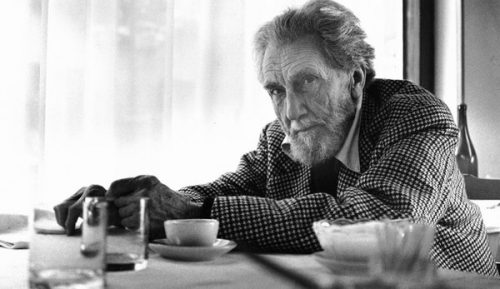
NOTES :
01. Déclarations de Pound en 1945, citées par G. Singh in Ezra Pound. Florence. 1979, p.10.
02. Canto LXV, Cantos Complets, Mexico, 1972.
03. How I began. 1913.
04. Comment lire et pourquoi ?
05. Jefferson et/ou Mussolini, 1935.
06. Guide to Kulchur, 1938.
07. À quoi sert l'argent ? in Greater Britain Publications, 1939.
08. Guide to Kulchur, 1938.
09. Michael Reck. Ezra Pound. Barcelone, 1976.
10. Lettre à John Courtos, 25 sept. 1936.
11. Data line in Make It New, 1934.
12. Jefferson et/ou Mussolini, op cit. « Une idée fixe est une idée morte, immobile, rigide, laquée, sans fondement. Les idées des génies ou des hommes sagaces sont organiques et germinales, elles sont la semence des écrits. »
13. Carta da visita, 1942.
14. Ma Patrie, 1913.
15. Travail et Usure, Lausanne, 1968.
16. Propos recueilli par René Palacios, Escrito en Rapallo, Madrid, 1982.
17. Carta da visita, op, cit.
18. Carlo Scarfoglio. Il caso E. Pound in Paese Sera, 16.06.1954.
193. Bien que, comme l'a signalé Piero Rebora, ce ne soit pas une poésie pour tous, il faut y être préparé (in Ezra Pound : Canti Pisani, article paru dans L'Italia che scrive en janvier 1954).
10:45 Publié dans Blog, Européens d'Outre-europe, Poésie, Politique / économie, Squadristi | Lien permanent | Commentaires (2) | Tags : ezra pound

